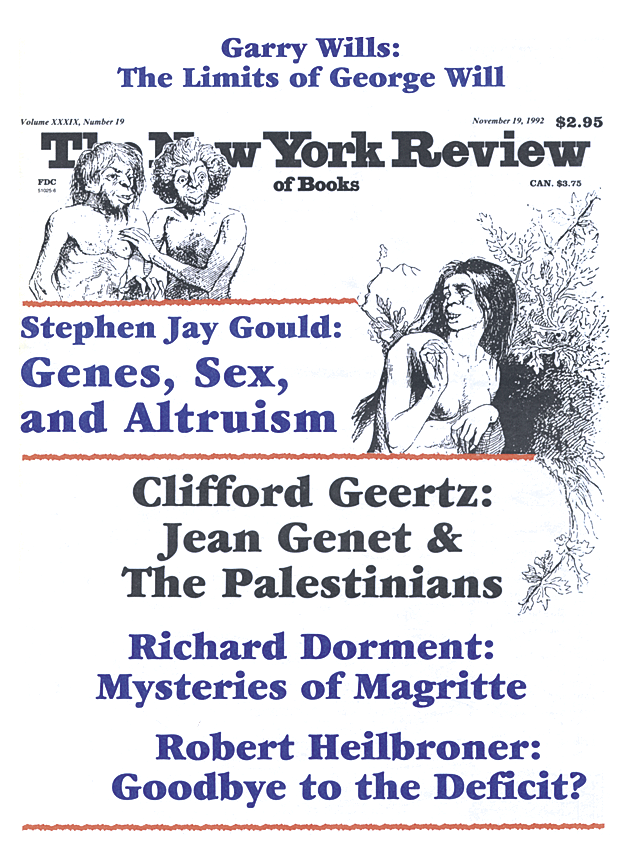In response to:
The Coming Battles over Free Speech from the June 11, 1992 issue
To the Editors:
Ronald Dworkin argues in “The Coming Battles over Free Speech” [NYR, June 11] that the Supreme Court ought to adopt a “constitutive” justification of free speech (and, judging from his other writings, of other constitutional issues as well). Such a justification, that “government treat all its adult members,…as responsible moral agents,” has two “dimensions.” The first is that “morally responsible people insist on making up their own minds about what is good or bad in life or in politics, or what is true and false in matters of justice or faith.” The second is that moral responsibility is “a responsibility not only to form convictions of one’s own, but to express these to others, out of respect and concern for them, and out of a compelling desire that truth be known, justice served, and the good secured.” If government fails to do this, “it forfeits a substantial ground of its claim to legitimate power” over us.
Professor Dworkin also approves of the Supreme Court changing the Constitution by reinterpreting its provisions. He approves of the outcome of Sullivan precisely because it “revised the constitutional law of libel.” To “revise” here is, I infer, to amend by way of interpretation.
But will Professor Dworkin please explain how nine people meeting in secret to change the fundamental law under which we all are governed is consistent with our status as “responsible moral agents”? Why doesn’t he think the Article V amending process, which gives citizens the opportunity to “make up their minds about what is good or bad in life or in politics,” and to “express these [convictions] to others,” more suitable to a nation of “responsible moral agents”? And why isn’t he forced to say, by his own argument, that a government which amends the fundamental law in secret cabal, without giving its citizens an opportunity to participate, “forfeits a substantial ground of its claim to legitimate power”?
David L. Brooks
Managing Editor,Critical Review
San Francisco, California
This Issue
November 19, 1992


